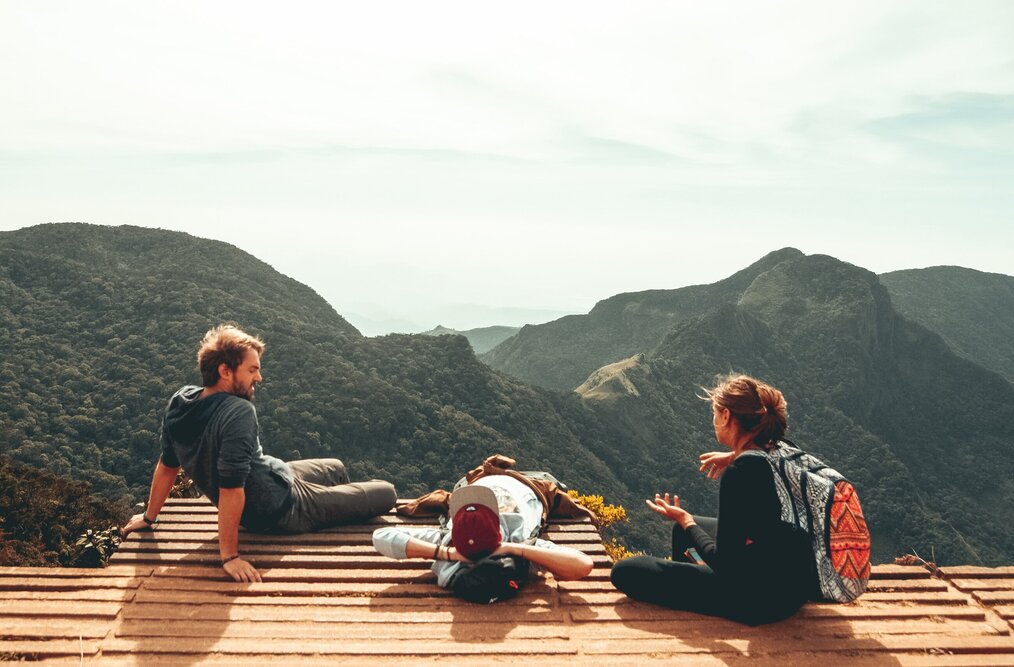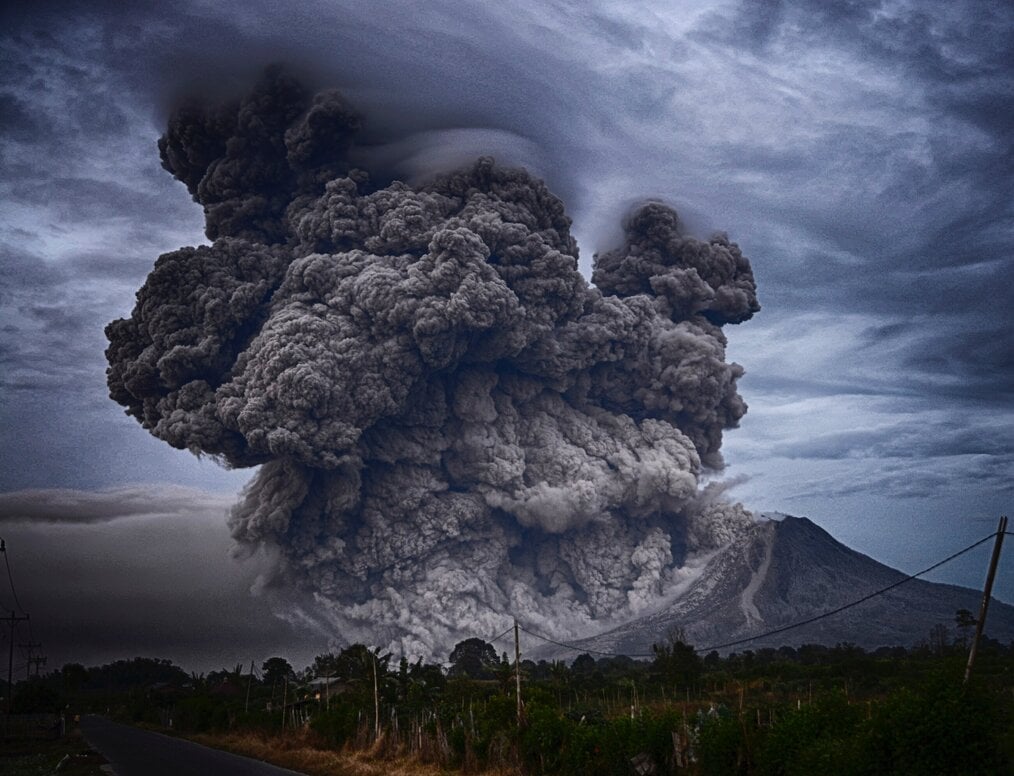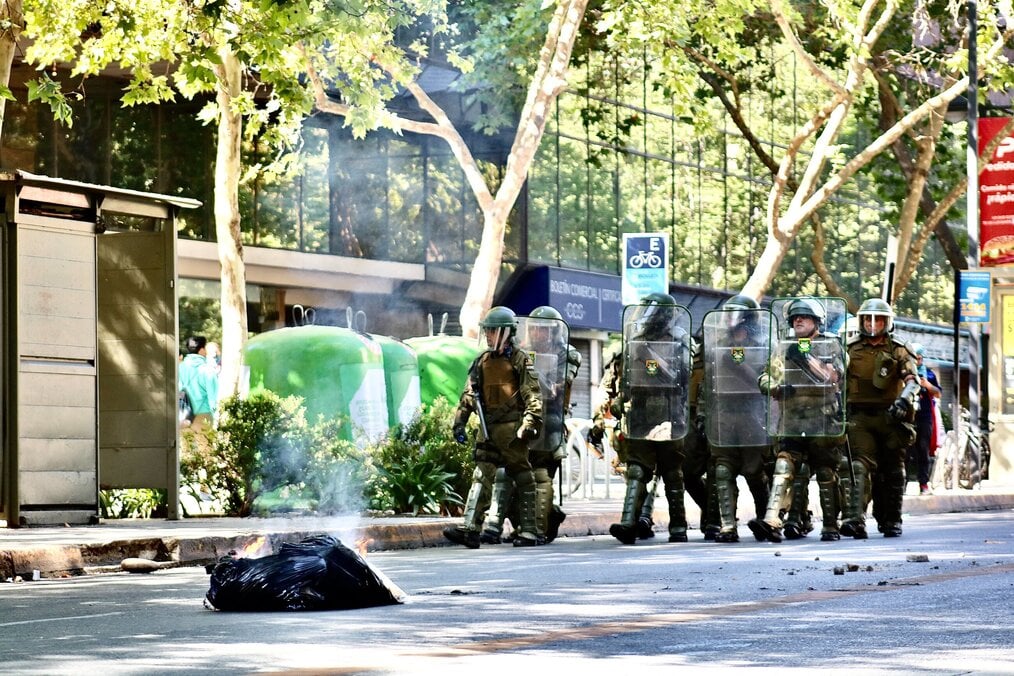How to Deal with Unforeseen Events During a Study Abroad Experience
While you probably won't experience a volcanic eruption or major illness during your study abroad, it's smart to be prepared for all possibilities. Read on to learn about the various events that could occur and how to deal with them while overseas.
Key Takeaways 🔑
- Before you jet off to your study abroad destination, take a moment to prepare for unexpected events that could throw a wrench in your plans.
- Carrying documents with your medical history and insurance information in your purse or wallet will help you in the event of a sudden illness or injury.
- Natural disasters like volcanoes, earthquakes, or tsunamis can be monitored through geological organizations. Each event has a recommended preparedness plan.
- Stay away from political protests or unrest no matter how interesting it seems. Bystanders can get unwittingly swept up in police interventions which can quickly turn violent.
- If you're a victim of a crime, contact the police and your country's embassy for help and support.

When I moved to Madrid to teach English in 2014, I checked into a hostel while I searched for an apartment. Before heading out to lunch one afternoon with some new friends I made there, I stowed my belongings away in one of the room's lockers I had been assigned. I got back an hour later to find it had been cleaned out. My tablet, DSLR camera, passport with my visa -- all gone.
After an initial freakout and subsequent period of shock, I went to the police station to report the theft. My next stop was the American embassy which, despite being closed for Labor Day, put me on the phone with consular staff who took my details and told me to come back the next day. I worked through the giant headache of government bureaucracy in the following weeks, eventually got a replacement passport and visa, and was able to move on with my life in Madrid.
Although it's unlikely you'll experience a major illness, disaster, or catastrophic event during your study abroad, being aware of how to handle these situations will leave you a lot more confident about being overseas. This isn't to say you should fixate on all the bad things that could happen! As the old adage goes, an ounce of prevention is worth a pound of cure.
Illness and injury

The most common unfortunate event to befall students while abroad is illness or injury. While most instances won't be serious, it's good to be prepared and have a plan should the unexpected occur.
Prepare before you go
Your health may be the last thing you're thinking about as you pack your bags for your study abroad adventure, but take a moment to sort out a few important points.
- Get travel insurance: Some programs include insurance and others require you to purchase it separately but regardless, make sure you have it. Some popular travel insurance companies include World Nomads and Allianz. Read the fine print and ask questions to understand which hospitals you can go to (public vs. private) in the event of an emergency. It may also be wise to carry a copy of the plan terms with you along with your medical history.
- Know your medical history: Have a conversation with your parents/guardians about your family’s medical history. You can also create a document for yourself in your destination’s primary language, which you can carry with you at all times. This can contain your most vital medical information, such as your name, emergency contact information, any allergies, etc.
- Bring enough medication for your trip: If you currently take medication, look into getting enough prescribed to you for the entirety of your program. In addition to your medication, it's wise to carry your prescription along with a signed note from your doctor. It may not be necessary for all destinations but it's better to be safe than sorry, especially if you're carrying a lot of prescriptions meds.
If something happens
We hope it doesn't, but should illness or injury strike, try to follow these steps:
- Don't panic: When you get hurt or are really sick in a foreign country, you're probably going to experience a certain level of anxiety and fear. Don't panic! Unless your injury or illness is dire, take a moment to take a deep breath and understand your situation. Keeping a cool head will help you navigate this unfamiliar terrain.
- Make contact with relevant services: Do you need an ambulance? Maybe just a cab to take you home for some much-needed bed rest? If you call an ambulance, be aware of whether this is covered by your insurance. Some countries could hit you with a bill and if you're not prepared to pay it, you may find yourself owing a sizeable amount of money.
- Call a friend: If at all possible, try to have a friend or someone from your program accompany you to a hospital or to see a doctor. They can help you with everything from walking to finding a translator to just plain ol' moral support. Going it alone is doable but can be scary when you're feeling bad.
- Call your family once you've gotten help: Your parents/guardians are likely thousands of miles away and while hearing their voices may be comforting in a time of panic, they'll likely start to panic, too. Knowing they can't help you could cause them to freak out which will only increase your distress. Once you've secured care and stabilized your situation, give them a ring to let them know you're OK.
Get in touch with your insurance provider as soon as you're able. Let them know what happened to learn how to coordinate coverage or reimbursement, whichever your plan stipulates.
Natural disasters

Though it's unlikely that you'll encounter a natural disaster while on your study abroad, expect the best, and plan for the worst. Whenever traveling, research and preparation will help you get home safely.
Volcanoes
The Ring of Fire is the line of volcanoes that dot the Pacific Rim. It’s a hotbed of seismic activity, so if you’re visiting New Zealand, Southeast Asia (especially the Philippines and Indonesia), Japan, Alaska, California, Peru, or Chile, then study up on the major active cones around you. Iceland, Italy, Guatemala, Colombia, Papua New Guinea, and Reunion also have incredibly active volcanos.
While all acts of nature provide their challenges in foretelling, there are predictors to volcanos that help indicate when they are at risk of erupting. By checking reports, you can avoid being on or near the volcano during an eruption. Most highly active volcanos are well monitored, and this disaster is one of the easier ones to prevent getting caught in.
Read more: Ready.gov's volcano preparedness guide
Earthquakes
Earthquakes can happen all over the world, though they occur more frequently on tectonic fault lines and the Ring of Fire. New Guinea, Nepal, Indonesia, and Japan are all very popular gap year locations, and all have been the victims of absolute monsters of quakes over the past few years. Earthquakes are impossible to predict, so it's essential to be prepared when you're in higher-risk areas.
The US government Ready.gov emergency preparedness website instructs you to drop, cover, and hold on. If you can't find nearby cover such as a table, cover your head and neck with your arms.
Tsunamis
Often, tsunamis follow earthquakes along the coast and can be far more devastating than the quake itself. However, they’re easier to predict by the drawback of water on the shore just before the tsunami hits. Note, however, that this does not always occur. And while your best chance of getting away from one is getting to high ground, you'll need to evaluate what structures, if any, can survive the onslaught of water.
Read more: Ready.gov's tsunami preparedness guide
Hurricanes and typhoons
You're not too likely to bump into major tsunamis or volcanic eruptions during your gap year. But one thing you need to be prepared for: typhoons. With global warming, it seems like the Storm of the Century comes about twice a year nowadays, and hail storms and flash floods kill people every year. They can happen just about anywhere, and the United States of America, Australia, parts of East Africa, and Southeast Asia tend to get the worst of them.
While staying inside is generally your best bet against these things, you can't always avoid them. Most flash flood deaths occur on traffic-stopped roads from which drivers can't escape. The best thing to do is be prepared -- try installing a storm tracking app on your phone that will give you notifications if extreme weather is headed your way.
If you're on a small island, try to get off and back to the mainland as soon as a warning is put in place. Evacuate elsewhere if at all possible. If not, identify where you should go if the Hurricane/Typhoon gets particularly bad (usually a school or community center).
Read more: Ready.gov's hurricane preparedness guide
Political turmoil and terrorism

The world can be a volatile place and while we often can't predict moments of political turmoil or terrorism, we can be prepared. If you come across a political demonstration or rally, you may be compelled to stay around to watch or even participate, but it's best to leave the area. Even bystanders can be swept up in police action against protesters and these events can easily turn violent. Rather than getting injured or arrested, keep yourself safe by staying far away.
Terrorist attacks are often hard to predict and in recent years have targeted busy public areas. Because of this, the US Department of State advises travelers abroad to be vigilant and aware of their surroundings when in places like markets, tourist attractions, and large events such as concerts. The US government offers the Smart Traveler Enrollment Program (STEP) for travelers to receive security updates. It also makes it easier for the government to locate you in the event of an emergency. Non-US citizens can sign up for general travel advisories.
Similar "smart traveler" programs exist for citizens of Canada, Australia, Ireland, New Zealand, and South Africa.
Crime
If you're a victim of a crime while studying abroad, call the police. Depending on the severity of the crime, you may first be transported to a hospital before answering questions and filing a report. Regardless of nationality, you should also contact your country's embassy when you're able to do so. They can support you by providing local resources, contacting family back home, and possibly by assisting you financially.
A police report is vital, especially for things like stolen passports so don't hesitate to go to a local police station if you're a victim of petty theft. Being reimbursed by your insurance for anything stolen will also require a police report affirming what was stolen and the value of the items.
Preparation is key
Accidents and illness are never fun but can be even scarier when in a foreign country. Of course, you can never be fully prepared for everything that can happen, but taking precautionary steps like researching the weather/geological conditions in your host country and having medical records on file can save you time and maybe even health in the long run. Nobody wants to think they’ll get sick or stuck in a bad situation while on study abroad, but it’s worth the time to plan just in case you do.
